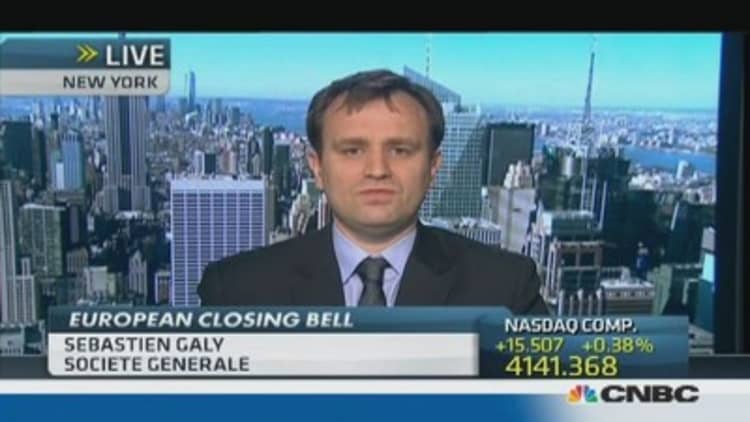
Sunday's vote in Switzerland on imposing stricter immigration controls has raised fears that the measure is the latest in a long list of reforms that could curb the country's business-friendly environment.
Swiss voters opted to back proposals to reintroduce immigration quotas with the European Union, with the outcome obliging the government to turn the initiative, spearheaded by the right-wing Swiss People's Party (SVP), into law within three years.
Dominik Hangartner, an associate professor at the London School of Economics told CNBC Monday that the vote wasn't good news for the Swiss economy.
"For businesses -- and I'm especially worried about small and medium-sized enterprises (SMEs) -- it's probably not good news," he said.
(Read More: Swiss vote to set limits on immigration from EU)
In the period before June 2002, when Switzerland had similar quotas, Hangartner said, big corporations usually got the permits they needed to recruit staff internationally. However, the SMEs struggled to gain those permits and, he warns, it looks as though that pattern could be repeated – hitting the companies' skill base and productivity.
Viviane Reding, the vice-president of the European Commission, told the Financial Times on Sunday that there could be uncertainty following the Swiss vote and it could hamper investment flows between the European Union and its neighbor.
"Business people will make their cost-benefit analysis and decide where to establish their companies," she said the newspaper.
Hangartner added that the Swiss vote was one of several reasons for concern that Switzerland is slipping from its status as a business-friendly country.
Switzerland's cherished banking secrecy has come under pressure when a deal was struck in August for banks to work with U.S. officials in a crackdown on wealthy Americans evading taxes.
(Read More: Swiss banks prepare to bow to US demands, grudgingly)
The country is also under pressure to reform its tax subsidies offered to multinationals with EU officials telling Switzerland that it should not to discriminate between domestic and foreign firms with taxation.
In the last week Yahoo decided to move its European operations to Ireland - which enjoys a capitation tax of 12.5 percent - although the company has stipulated that it hasn't moved for tax reasons.
"Until yesterday, one thing that it could offer and did offer was political stability and slow but consistent policymaking. And I do agree that that probably changed yesterday, so we'll see what the implications of that are," he said.
Sebastien Galy, senior currency strategist at Societe Generale believes that the country's housing market and local equities will also be negatively affected by the immigration vote. He added that the labor force would now hold the balance of power in a closed economy.
(Read More: Swiss banks agree to US tax deal, more expected to follow)
"With a reduced access to foreign labor, Switzerland's potential growth is lower while its inflationary potential over the medium term increases from ultra-low levels. Labor slack in Switzerland is very limited," he said in a research note on Sunday evening.
The Swiss SMI Index remained relatively untouched on Monday after the news. The country's blue-chips such as Novartis, Roche, Nestle and Swatch all traded either flat or in the green.
A spokesperson for healthcare company Roche told CNBC via email that the company "respected" the vote outcome and will wait and see how it is actually implemented. The company refrained from commenting further on the result.
Swatch Group's CEO, Nick Hayek said that the vote showed that Switzerland is a real democracy and is a sign of strength and of independence for Switzerland.
"The majority has expressed unease about the situation and now the politicians have to act accordingly. This is direct democracy and, is of course, not liked by the politicians," he said.
By CNBC.com's Matt Clinch. Follow him on Twitter @mattclinch81


